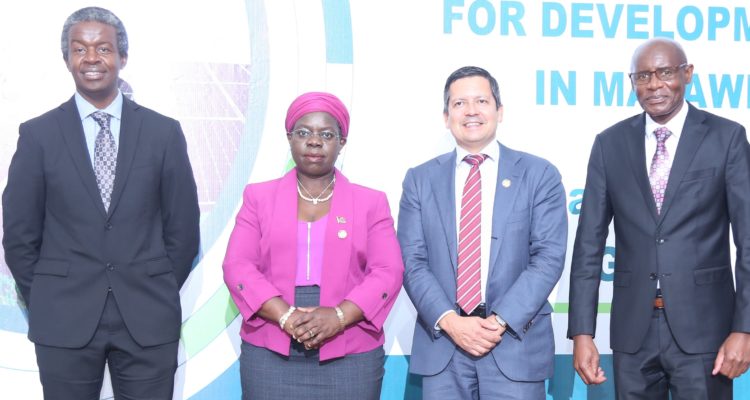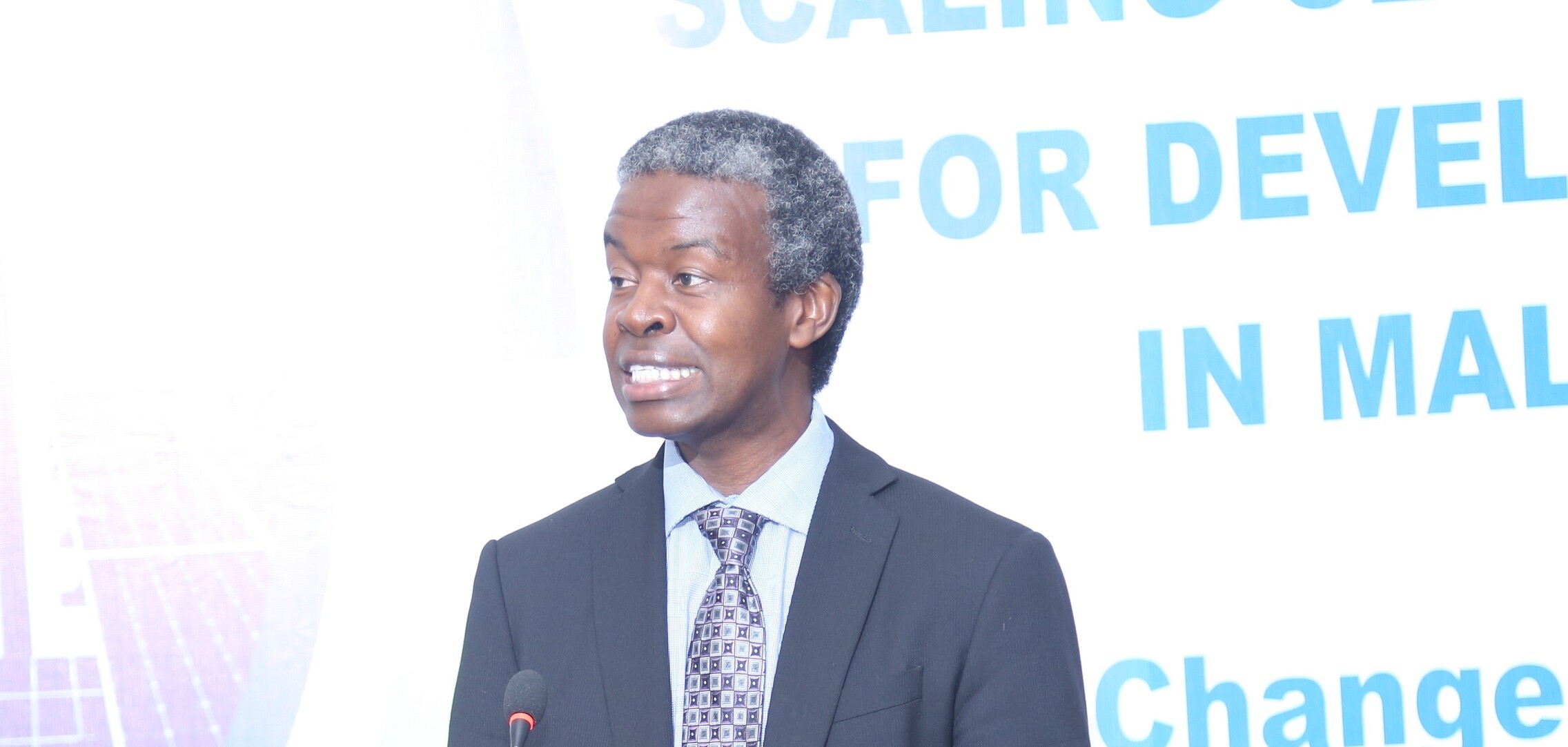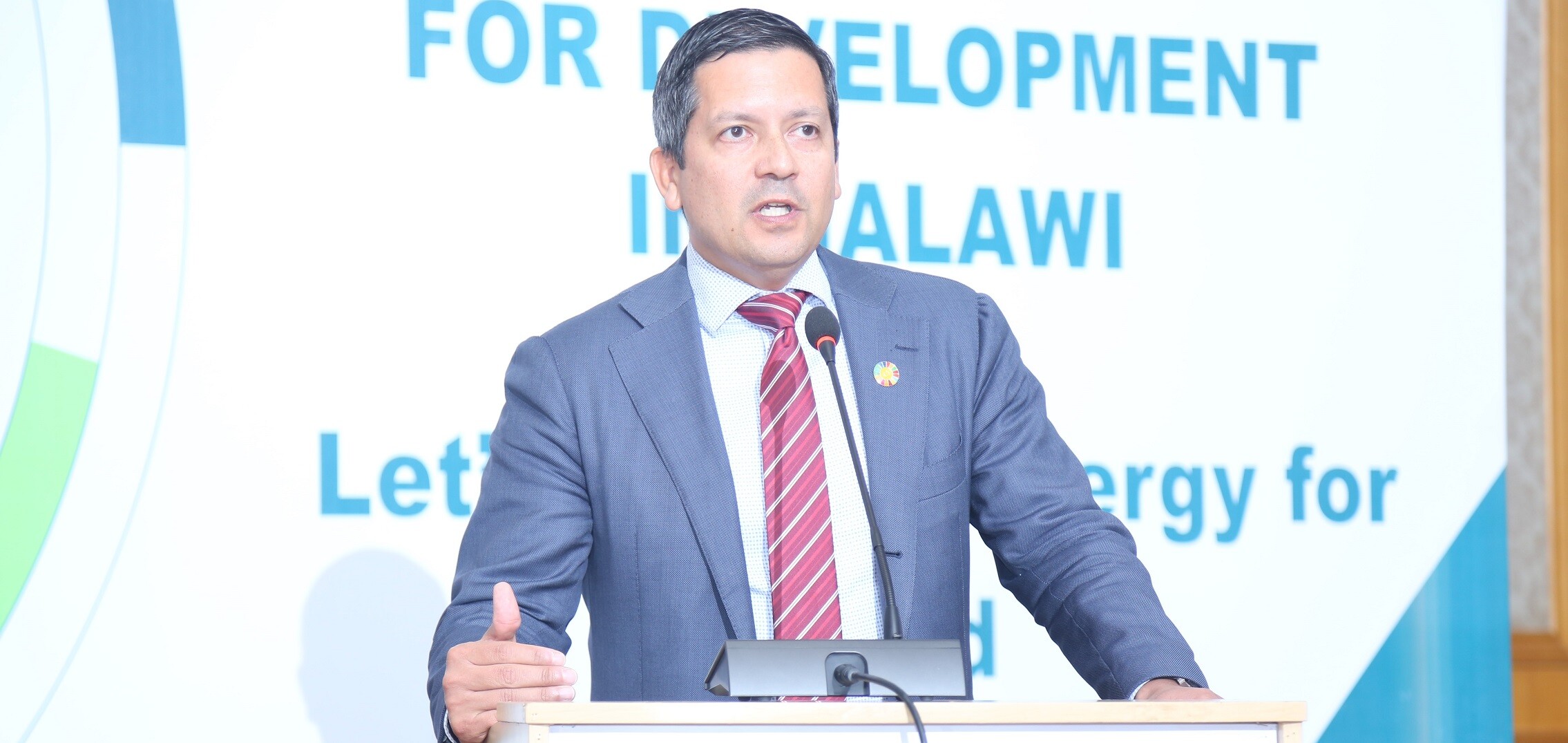
The Global Energy Alliance for People and Planet (GEAPP) has approved US$27.6 million (about K28 billion) to support Malawi in its goals to increase electricity access from 18% to 100% and improve energy security and reliability.
The funds include US$20 million (about K20 billion) for procurement and installation of a storage battery to stabilize solar power and US$1.5 million (about K1.5 billion) to the Presidential Delivery Unit (PDU).
GEAPP – a partnership of philanthropies including Rockefeller Foundation, IKEA Foundation and Bezos Earth Fund as well as multilateral and development finance institutions and authorities – launched the ‘Scaling Renewables in Malawi to Underpin Development’ program in Lilongwe on Wednesday to assist Malawi in achieving universal energy access by 2030.
Speaking in an interview during the launch, Joseph Nganga, Vice President for GEAPP, said the alliance has committed US$20 million to install a battery system that helps stabilize the renewable energy network.

According to Nganga, the battery has storage capacity of 20 megawatt hours and allows for absorption of solar energy being generated to ensure a stable network.
“It is also an important stopgap measure as more renewable energy is being built, so the battery energy drives additional capacity in the country,” said Nganga.
In a statement, President Lazarus Chakwera said Malawi is proud to join GEAPP and reaffirm its commitment to ensuring everyone, everywhere has equitable access to reliable, affordable energy.
“Together our work across the clean energy ecosystem: supporting utility-scale clean energy storage, building decentralized renewable energy to increase agricultural productivity, and developing integrated energy planning, will help transform our country’s economic development,” Chakwera said.
Under the GEAPP program, the Government of Malawi, led by the Ministry of Energy, is also launching the Malawi Integrated Energy Planning Tool in collaboration with Sustainable Energy for All (SEforALL).
The data-driven interactive tool represents the first national integrated energy program and provides critical data and analysis that will assist a range of stakeholders, including the Government and private sector, to make informed decisions on lowest cost electrification, clean-cooking, and cold chains for vaccine distribution across the country.
Approximately 3.7 million Malawian households – 78% of the population – and 47% of public facilities including schools and hospitals lack access to electricity service.
For Malawi to reach sustainable energy for all, the tool estimates that approximately 4.8 million additional connections will be required across the country, with mini-grids representing the lowest cost solution for around 350,000 of them, and solar home systems for around another 1 million.
The tool also identifies the funding required to reach universal electrification in the country and the targets set by the Malawi SDG7 Cleaner Cooking Energy Compact.
According to the tool, the lowest cost plan for Malawi to electrify the nation through grid, mini-grid and solar home systems will require US$3.6 billion in investment.
It also indicates that US$108.8 million will be required to provide to replace cookstoves, US$3.6 million will be required to provide stand-alone systems to power the health facilities and US$17.6 million will be required for solar-battery retrofits to improve cold-chain resilience in grid-tied facilities.

Glenn Pearce-Oroz, Senior Director of International Relations and Special Projects at SEforALL, said the IEP tool needs to be used by all sectors.
“It does us no good if it is only a static website. There are a lot of market opportunities in this website that different developers can benefit from hence it needs to be used to maximum benefit.
“Hopefully, next year by this time we can see all the good progress made in Malawi with more electrification and more clean cooking,” he said.
Follow us on Twitter:














